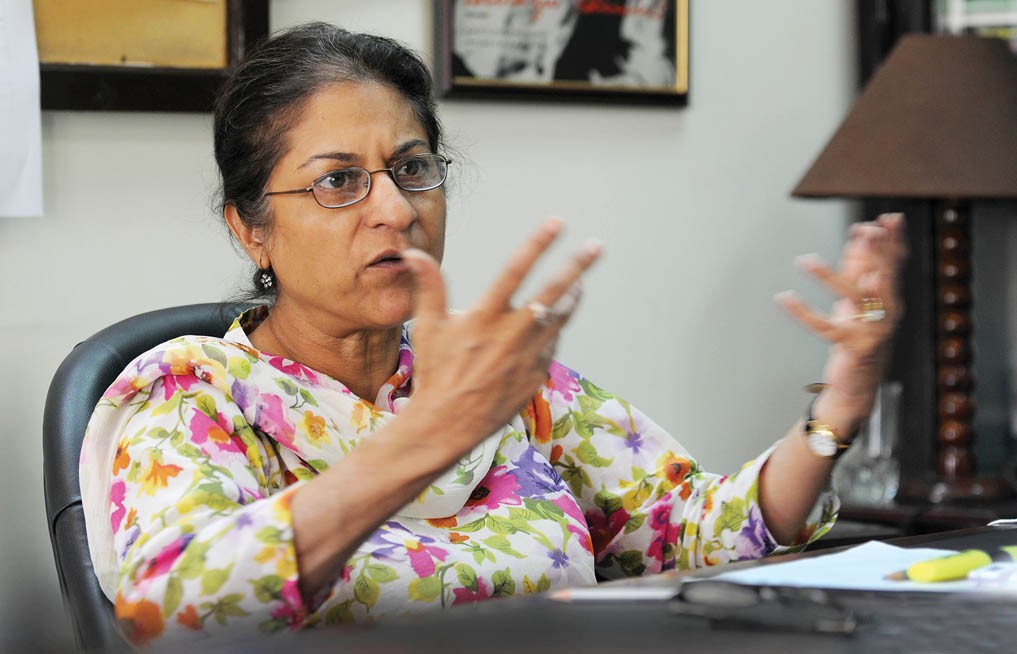
Her work was founded on a belief that civilised societies should be governed by legality

Dear All,
Ever since the news of Asma Jahangir’s death last weekend, much has been written about this principled and committed lawyer who fought tirelessly and fearlessly for human rights and the rule of law. The outpouring of grief has come not just from Pakistan and the region but from all over the world. People who knew her well and who marched with her for many causes have shared their memories, people have written about her being a trailblazer in Pakistani legal history starting from the very first petition she filed aged just 18 (which resulted in the judgment that the military ruler of the time was legally a usurper). Others have spoken of the immense loss this was for the country because she had been the voice of the disenfranchised, oppressed and enslaved of the land.
A great deal has been written. So, then, why one week later I am writing more?
The answer is quite simply that this week it seemed absurd to write about anything else. And the reason is that the importance of this brave woman in recent Pakistani history is immense.
I say this because essentially Asma Jahangir’s work was founded on a belief that civilised societies should be governed by legality. Despite all the street protests, the slogans and the fiery speeches at public rallies, everything she did was linked to a belief in the rule of law. She didn’t just turn up at rallies and challenge the cops who were bearing down heavy-handedly on protestors -- in addition to the street protests, she fought this ‘good fight’ in the courts, in the arena of law and jurisprudence. She fought with all the weapons of law and logic even when the odds were stacked against her, even when she detected bias on the bench.
A belief in the rule of law is basically a belief in the concept of citizens’ rights, and this is something that Asma Jahangir reiterated time and again through nearly every case she took on, through every cause she lent her voice to. Pakistan’s legal system is still a stage where it is intimidating and costly. It can destroy lives and lead to financial and reputational ruin. Asma Jahangir was the one person who was ready to navigate even the most oppressed and maligned of citizens through the labyrinth of court dates and litigation, who was perfectly clear as to what the legal principle was that needed to be fought for.
To stay this course was an amazing achievement. We, who have lived through the bloodiest decade of terrorist excesses in Pakistan, may often react to the bloodshed by declaring the attackers worthy of death even if it be through extrajudicial killings or specific military operations. But this is essentially against the rule of law because the principle of legal rights cannot be applied selectively, it needs to be applied to all, according to law. So to adhere to this belief in the rule of law applying to all -- even terrorism suspects or self-proclaimed assassins or terrorists -- is not always easy, yet it remains essential to a belief in the rule of law and the legal rights of every citizen.
Asma Jahangir’s fight for human rights and against tyranny and oppression was not just limited to Pakistan -- her belief in the rule of law and its civilising power took her all over the world, and she was extremely well regarded in her role as the UN rapporteur on Freedom of Religion which took her to many different countries. But it was in Pakistan that she attempted to take the practical legal measures which would uphold the basic idea of the rule of law. She fought for this in the courts: she fought hard to reshape the interpretation of the law and to set precedent.
With the general elections due in just a few months, it is important for us to remember that the essential function of our elected assemblies is legislation i.e. making laws. Elected representatives who rarely attend sessions and do not engage in legislation signal to us by their behaviour that they are not interested in the law of the land or the rule of such law. Asma Jahangir’s life and work should remind us how very important the rule of law is for a just society, and how you need to keep working on shaping and defending the laws of the land and the rights of citizens.
Best wishes